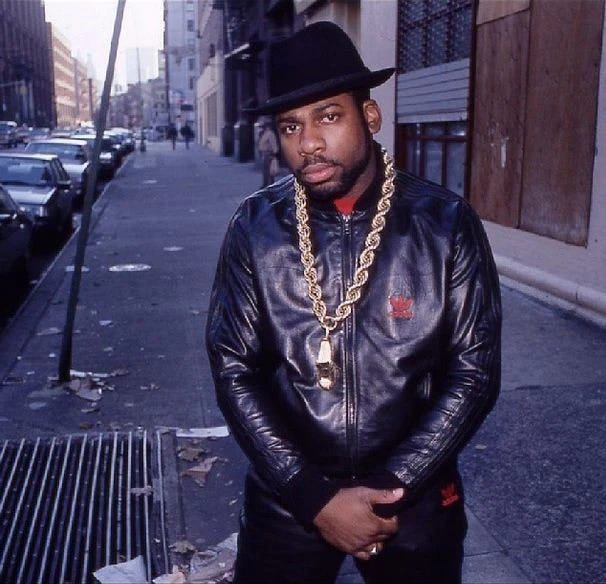THE DAY JAM MASTER JAY DIED
October 30, 2002
On October 30, 2002, I had a one room office on Broadway just above Bleecker Street, which was plastered with photos and posters, and filled with shelves of vinyl, CDs, magazines and file cabinets that stored interviews and clippings. I shared the space with a part time assistant Nicole, who was attending NYU. Sometimes we shot pieces of short films or recorded things in there. It was my first real Manhattan workshop after years of using the offices of Billboard and the Village Voice to hang out.
I was a producer on a film I’d pitched to HBO about gentrification and was a par of some other cable shows. After a decade plus as as a music journalist and some fleeting success in movies, it felt like I was finally establishing myself as entity as a producer. But, for all my optimism, there was a dark cloud coming by way of phone call I received that day. Jason William Mizell aka Jam Master Jay, only thirty-seven years old, the DJ and backbone of Run-DMC, had been shot dead in Jamaica, Queens at thirty-seven. Not only had Jay stepped onstage at Live Aid, but I’d seen him at countless shows, from little clubs to arenas back to small venues, dropping the beat as rap became hip hop and hip hop spread across the globe.
At the time of Jay’s death Run-DMC had long since peaked as a commercial force and the group was somewhere between washed up oldies act and classic rock band. Its two front men had been drifting away from Run-DMC and pursuing non-musical interest, but Jay had stayed emersed in music, producing and signing acts out of his native Queens as the second act in his musical career.
I was forty-four the day Jay died and it’s probably the first time I faced my mortality. Though we weren’t close friends, Jay and I shared meals, tour bus rides, and backstage alcohol. Amid the expansion of hip hop that Run-DMC helped push, Jay was always a solid guy who seemed way more grown than the boys around him playing at manhood.
I made a bunch of calls to friends, seeking details and receiving news inquiries about the group’s future and gossip about Jay as a drug dealer that I didn’t co-sign. There was a yoga studio a block away on Broadway. I signed up for a class, hoping that stretching and deep breathing would relax me. Fifteen minutes later I was in downward dog when a torrent of tears fell onto my mat. The teacher came over, kindly laid me on my back, and surrounded me with blankets after I told her my friend’s passing. I laid there looking up at the ceiling and mourned, not just Jay’s life, but the end of the era his shooting represented to me. I was new to this kind of grieving – the sudden death of a peer – and didn’t know how to process it. Unfortunately, the new century to come would give me ample opportunity to refine my grief.


